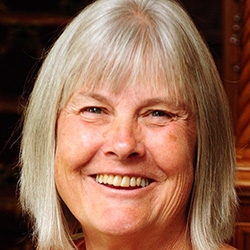
Search Results: requests
-
Transforming anger is a key practice for returning to conscious presence and connection with self and others when triggered into a reaction. Join John Kinyon to learn this essential life skill through the Enemy Image Process and Learning/Growth Spiral.
-
Join Kathleen for a gentle, compassionate exploration and embracing of your true self. Reclaim your self-worth, experience greater freedom when expressing your self and actually celebrate who you are in the world. Delve into what self-love is and is not – including how to distinguish self-worth from negative cultural labels such as self-obsession and selfishness.
-
Listen to Roxy Manning explore the barriers to speaking authentically as powerful voices for change, and practice these needed conversations about the ongoing violence in the streets of America.
-
Join Linda Mia Mukte (formerly Rysenbry), CNVC Certified Trainer, for this uniquely powerful telecourse recording that blends NVC with Dr. Sue Johnson’s empirically validated work on adult love relationships called EFCT: Emotionally Focused Couples Therapy.
-
Do you ever think you have the perfect answer for someone who is struggling? Eric offers a tip on how to approach situations like this.
-
Eric explains how we can often avoid regret by getting empathy before making important decisions.
-
Eric Bowers explains how needs and strategies correlate to different brain hemispheres, and how relaxing into our needs opens us to greater possibilities.
-
Conflict is a normal and natural part of life. To varying degrees, it happens whenever two or more people consistently spend time together. Resolving conflict effectively and peacefully, in a way in which all parties feel respected and valued, does not feel natural for those of us who grew up with punitive, adversarial, or avoidant approaches to conflict. Eric offers some tips for approaching conflict.
-
In our fast-paced, busy lives it is tempting to practice NVC mostly with the left hemisphere of the brain, thinking through the steps quickly without slowing down to connect more deeply with feelings and needs. Don't miss an opportunity to integrate the hemispheres of the brain and the valuable information from the neural networks in the heart and gut.
-
When we take a leap in life and put our hearts out into the world in new or bigger ways—sharing a song, dance, or poem, writing a book, competing at a sporting event, giving a speech, and so on—there is greater potential for aliveness but also for shame and pain
-
Asking for help is difficult for many of us, but can yield rich rewards.
-
Trainer Tip: There are many ways to meet a need. Open to new possibilities.
-
Trainer Tip: The change you're looking for begins with a single step.
-
In our internal conversations, some voices dominate others, which can leave us feeling fragmented or overwhelmed. But when we dive beneath the surface and really listen to our many parts, we connect vulnerably to our full humanity.
-
Mary explains the value of expressing ourselves honestly. Watch as Mary uses the 4-step Nonviolent Communication process to express needs clearly, honestly and compassionately. She follows with concrete examples to help you anchor your learning process to deepen your authenticity and honest expression skills.
-
In this vintage NVC video, Bridget Belgrave, CNVC Certified Trainer from the United Kingdom, uses a Powerpoint presentation to demonstrate the key principles of Nonviolent Communication. Starting with needs at the center, Bridget builds a visual structure of the NVC process. This resource has been newly remastered to a larger, higher quality video.
-
Inspired by a talk given by Marshall Rosenberg, Jim offers an interactive exploration of powerful strategies for making NVC an integral part of your everyday life.
-
Listen as Miki works with participants. Topics: how small requests serve interdependence; NVC process vs purpose; how to respond when empathy is used to create distance; coping with verbal aggression, and more!
-
Join CNVC Certified Trainers Jim and Jori Manske for this session that will help you minimize your reactivity and live in greater choice.
-
Trainer Tip: One of the basic philosophies of Nonviolent Communication is valuing everyone’s needs equally. That means that you consider your needs to be equal to another person’s needs. If someone asks you for empathy, and you choose to empathize at you own expense, you're not living in a Nonviolent Communication consciousness. Be aware of your own needs today when someone asks you to be their emotional support.




















